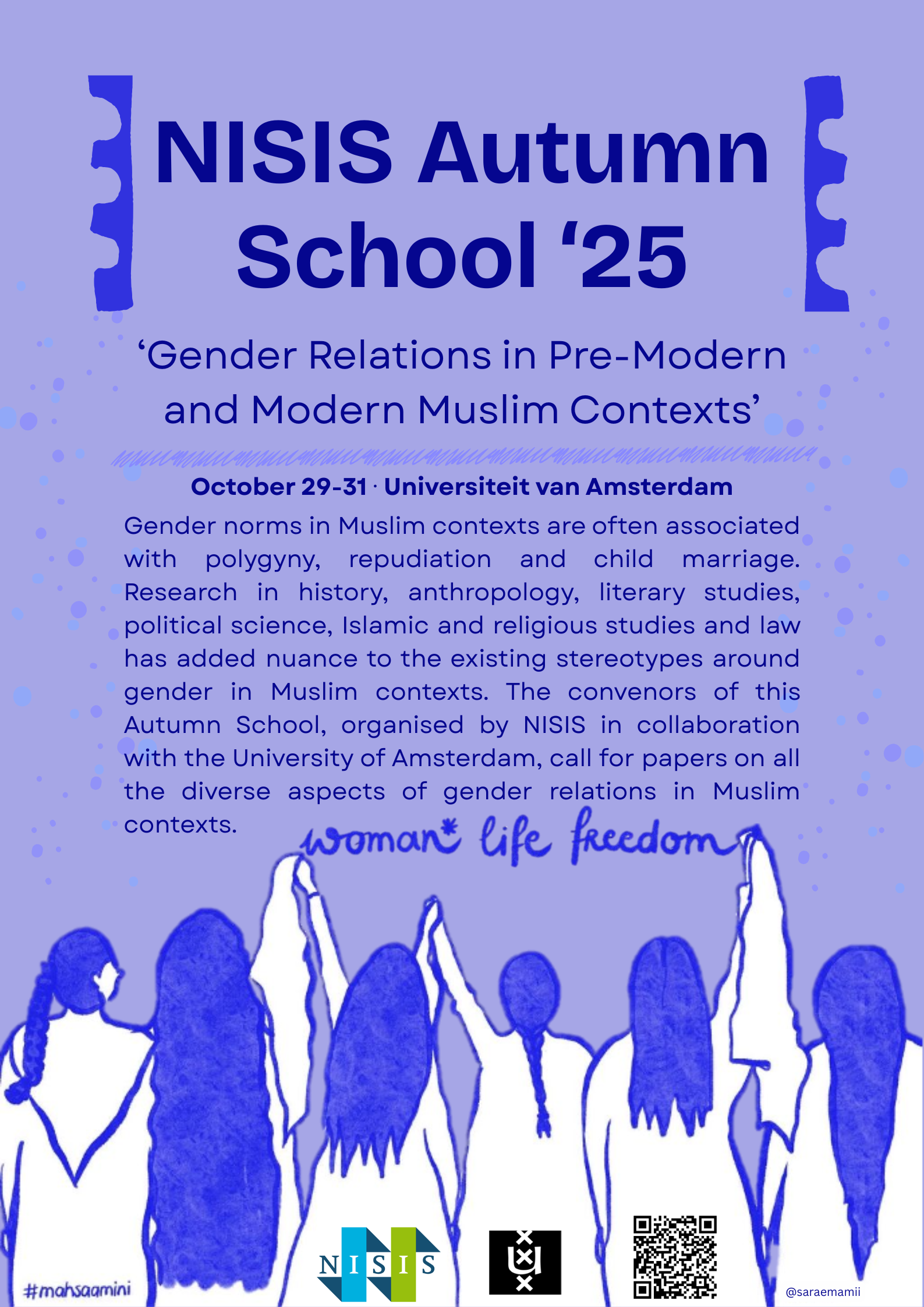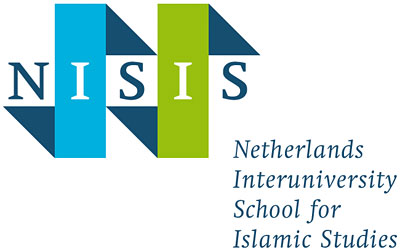Agenda
NISIS Autumn School ’25: “Gender relations in pre-modern and modern Muslim contexts”.
It is no longer possible to apply for this event.
Gender norms in Muslim contexts are often associated with polygyny, repudiation and child marriage. In fact, since the negative stereotyping of Islam and Muslims intensified following 9/11, gender has consistently played a crucial role in the narratives about Islam and Muslims, with discourses of ‘repressed women’, ‘violent men’, and ‘generalised homophobia’ (Bracke & Hernandez Aguilar 2022). But what exactly are the gender norms exactly in Muslim contexts? How about the varieties across time and space? And what about practices, activism and debates?
Research in history, anthropology, literary studies, political science, Islamic and religious studies and law has added nuance to the existing stereotypes around gender in Muslim contexts. For example, Massad, Rouayheb and Myrne, amongst others, have disproven the assumption that (male and female) homosexuality is and always has been taboo in the Muslim world. Likewise, several scholars have revealed the influence of colonialism on the gender norms as they exist today, pointing to the evolution of concepts such as ‘women’s domesticity’ in the colonial period (e.g. Cuno). In the same vein, research has shown the impact that post-colonial gender politics and ‘state feminism’ have had on contemporary relations between the sexes (e.g. Bier, Hatem). Also, some authors have looked at the strategies of women in Muslim contexts to reveal their agency (e.g. Moors, Ahmed, Mahmood), while others have demonstrated women’s combativeness in the context of women’s rights movements (e.g. Al Ali).
The convenors of this Autumn School, organised by the Netherlands Interuniversity School for Islamic Studies (NISIS) in collaboration with the University of Amsterdam, call for papers on all the diverse aspects of gender relations in Muslim contexts. Relevant sub-themes include (but are not limited to) those mentioned above, ranging from the pre-modern period to today, and from Muslim majority countries in North Africa, the Middle East, South-East Asia and the Balkans to Muslim minority contexts in other parts of the world (Western Europe, North America, Latin America and beyond). Papers may take a text-based approach, have their roots in ethnographic fieldwork, or take another academic approach toward the overarching subject of the Autumn School.
For registrations, please click here.
Confirmed speakers:
| Dr. Jasmijn Rana – Leiden University
Prof. Karin van Nieuwkerk – Radboud University Dr. Maaike Voorhoeve – University of Amsterdam |



